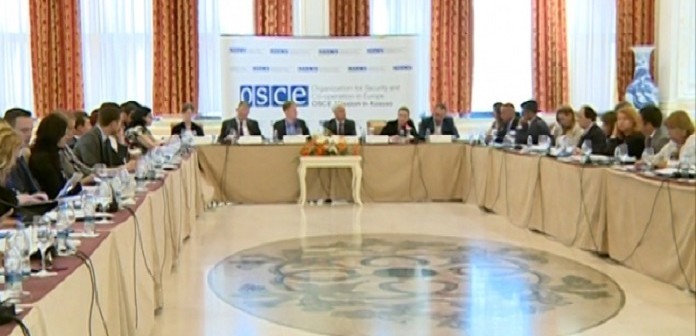The OSCE mission in Kosovo organized a regional conference on the challenges and best practices in the application of nondiscrimination legislature.
The panelists were experts in the field of human rights, ombudsman institutions and civil society organizations from the countries of the Western Balkans, as well as institutional representatives, among which were OSCE’s Office for democratic institutions.
As they were sharing their experiences in the field of human rights, the representatives of non-governmental and independent organizations agreed that while the number representations involving discrimination in the region of the Western Balkans was great, few of them were processed.
Initiation of proceedings before state authorities and an insistence on urgent solving of these issues are some of the mechanisms in the fight against this problem.
“It is my belief that the Kosovar authorities will be encouraged by the international community to solve these issues. The European Union, which monitors cases in the fight against discrimination in Serbia, will continue to do so in Kosovo as well. The EU and the civil society expect results throughwork on specific cases on one hand and prevention of discrimination on the other, through open talks, including ones in schools with youngsters who shouldn’t inherit discrimination policies,”said Milan Antonijevic, Director of the Lawyers committee for human rights.
One of the chief reasons that the discriminated party doesn’t report cases of discrimination is their inability to obtain legal aid. While a Free Legal Aid Act still hasn’t been passed in Serbia, such a law has already been passed in Kosovo.
“People who receive social aid, the unemployed, marginalized groups which include displaced people and refugees, old people, minors and individuals with special needs, women and children who have been victims of domestic violence and trafficked people are all entitled to free legal aid. Due to such a wide criteria and according to OSCE’s statistics, a staggering 74% of Kosovo’s population is entitled to free legal aid,” says Drita Redzepi, legal aid coordinator.
The parliament of Kosovo recently passed a law against discrimination which strengthens the position of the discriminated and the public attorney. OSCE’s mission in Kosovo was involved in the making of this bill.
“Firm implementation of antidiscrimination laws is key in the process of securing human rights. Antidiscrimination laws exist in all the countries of the region but we are still witnesses to unequal treatment and segregation based on sexual orientation, ethnicity, social status, gender and disability. For this reason, it is of vital importance to use these conferences to work together on finding appropriate steps to implement these laws,” says Jean-Claude Schlumberger, head of the OSCE mission in Kosovo.
According to reports from international organizations, most widespread is the discrimination against minorities, most notably relating to their mother tongue since most laws in Serbian, which is an official language in Kosovo, are poorly written or translated.
Roma people, Ashkali and Egyptians are still subject to widespread discrimination, while measures aimed towards their integration are few and inadequate. Hate crimes inspired by sexual orientation or identity are also frequent.





